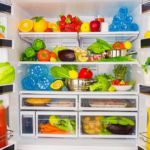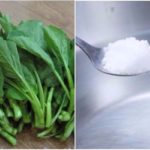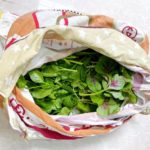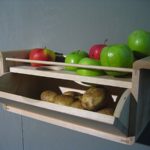In addition to meat and fish, which provide protein, a well-balanced family meal also includes fiber-rich foods, especially green vegetables. Green vegetables are a great source of various nutrients, including vitamins C, E, B2, B3, and B6, as well as minerals like calcium, potassium, zinc, and magnesium. They are an essential part of our daily lives.
However, during the summer or extremely hot days, there is a concern for homemakers regarding the purchase and use of vegetables—they tend to wilt or spoil quickly. To address this issue, many experts have suggested that certain preparation and storage methods can help households keep their vegetables fresh for longer periods, even up to a week or a month.
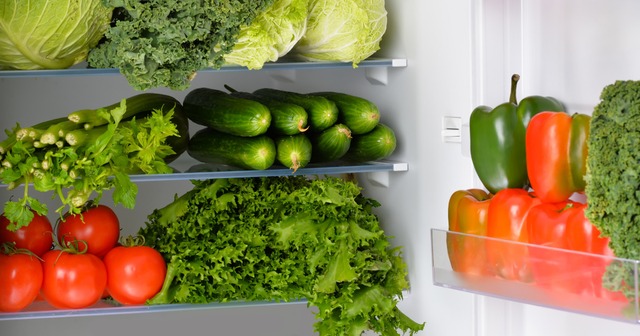
Proper vegetable storage can help keep them fresh for longer (Illustration)
The following method is one of the most well-known and was mentioned in an article by the British newspaper Mirror. Specifically, Kristin Marr, the founder of Live Simply and a renowned chef, provides the following instructions:
– First, when you buy vegetables, make sure to clean and sort them properly. For vegetables with leaves attached to the stem/root, separate the leaves.
– After cleaning, let the vegetables air dry until they are completely dry.
– Next, place the vegetables in plastic containers or ziplock bags. If using containers, line the bottom with 1-2 layers of paper towels. If using bags, place 1-2 sheets of paper towels along the sides.
– Finally, close the container lids or seal the bag openings. It is important to not seal them too tightly, as air circulation is still necessary.
The expert explains that vegetables stay fresher when they have the right amount of moisture. When they are too wet or too dry, they tend to spoil quickly—wilting from excessive dryness or rotting from too much moisture. With the above method, the vegetables maintain a certain level of moisture while also being able to “breathe,” thus retaining their freshness.
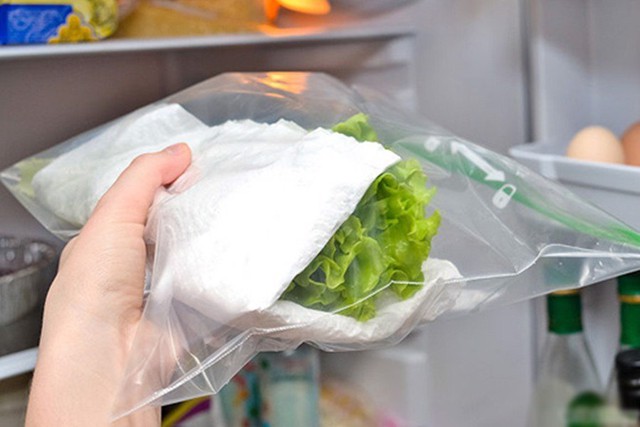
Illustration
Many families have the habit of simply placing vegetables in containers or bags and sealing them tightly. However, this inadvertently causes the natural moisture in the vegetables to accumulate, leading to quicker spoilage rather than prolonged freshness.
The above method only takes about five minutes but offers significant benefits. Depending on weather conditions or the settings and technology of your refrigerator, vegetables can stay fresh for up to a week or even a month.
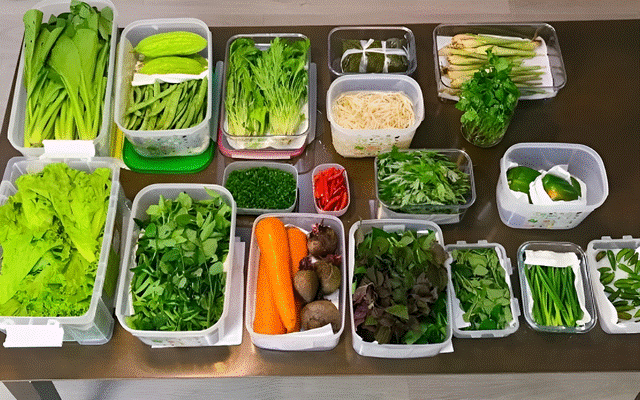
Illustration
Additional Tips for Vegetable Storage
In addition to the above storage method, there are a few other things to keep in mind to ensure the best results when keeping vegetables fresh.
1. Sort Vegetables Before Storing in the Fridge
A common mistake many people make is not sorting their vegetables before putting them in the fridge. Some even store vegetables together with fruits. Certain fruits, such as tomatoes, bananas, and apples, continue to produce ethylene gas even when stored in the refrigerator. This gas can cause vegetables to age and wilt faster. That’s why placing certain fruits next to bananas or apples can help speed up their ripening process. To keep your vegetables fresh for longer, avoid making this mistake.
It is best to sort and separate your vegetables, fruits, and roots as clearly as possible in the fridge. For example, keep leafy vegetables in one compartment, roots in another, and fruits in a separate compartment. This also makes it easier for you to find and use them.
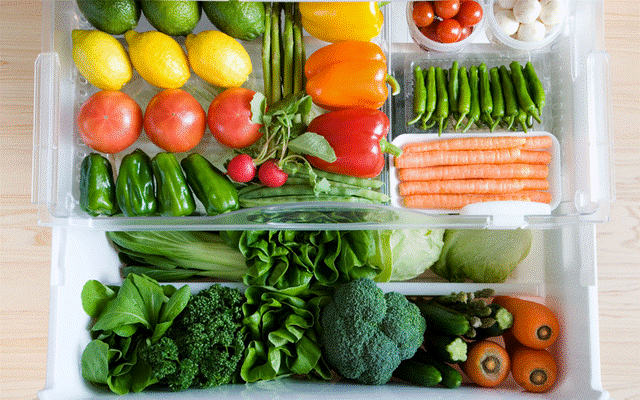
It is best to sort vegetables as thoroughly as possible and avoid placing them near ethylene-producing fruits (Illustration)
2. Store Vegetables at the Right Temperature
It is not always true that the lower the temperature, the better it is for vegetables. Experts emphasize that the ideal temperature range is between 1-4 degrees Celsius. Lower temperatures can cause the vegetables to freeze, and they will spoil once thawed. Higher temperatures provide an opportunity for bacteria to grow.
Modern refrigerators often have separate compartments specifically designed for storing vegetables and fruits. These compartments are set to the ideal temperature range. Therefore, you only need to store your vegetables in the correct compartment without the need for further adjustments.
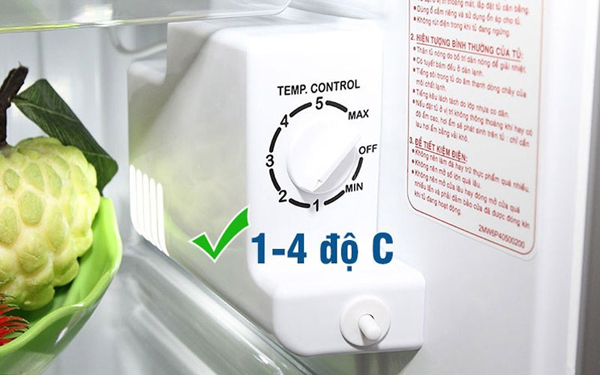
Illustration
3. Do Not Store Raw Vegetables Near Cooked Food
Cooked food not only generates heat but also provides an environment conducive to bacterial growth, which can affect the quality of raw vegetables. It is best to avoid placing raw vegetables directly next to, too close to, or on top of a container, pot, or bowl of cooked food.
Additionally, cooked food is often seasoned and may have a strong aroma or color. These characteristics can unintentionally transfer to the raw vegetables.
In addition to the three main tips mentioned above, it is important to inspect your vegetables before storing them in the fridge. If you notice any wilted, old, or yellowing leaves, or any spoiled parts, remove them immediately. If you separate the leaves and stems of the vegetables, place them in separate containers or bags before storing them in the fridge. Most vegetables are not suitable for freezer storage. However, there are a few exceptions, including corn, peas, carrots, mung beans, Chinese cabbage, and cabbage, which can be frozen.
According to Nguoiduatin


























